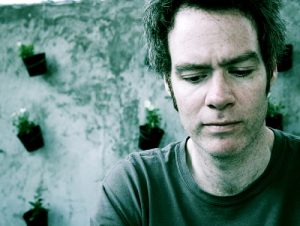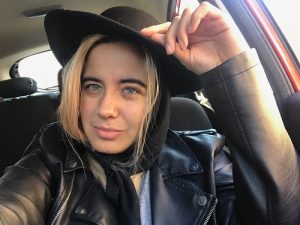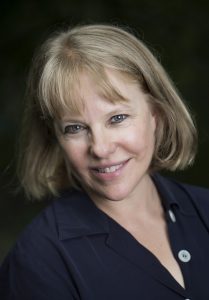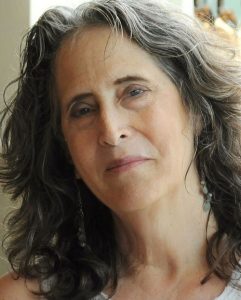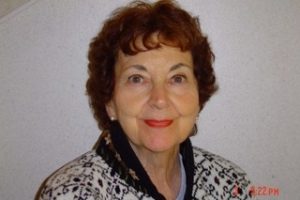A Turn in the Path
by Kari Ann Ebert
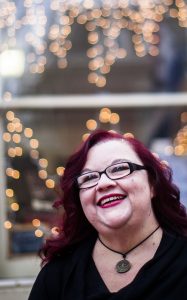
I leave you standing on the curb
step over the border of river rocks—
so much like my mother’s inukshuk
built with care by my father.
Once it stood tall and strong—
arms wide calling to the sun.
I used to sit quiet in its shade
examine that inukshuk,
wonder what trail it marked for her
why she had to see it built—
that pile of grey stones like a harbinger
on the edge of her suburban lawn.
Now, years later, it leans to one side.
Its body weakened by a burden unknown
Heavy with its own secret weight
like the smooth warm weight of your hand
on the back of my neck.
I stop. Pick up three rocks,
memorize their size and heft
drop them into my pocket.
Winner of the 2018 Gigantic Sequins Poetry Contest, Kari Ann Ebert’s poetry appeared or is forthcoming in Mojave River Review, Gravel, The Broadkill Review, and Gargoyle among others. She is working on her first poetry collection, Alphabet of Mo(u)rning. Kari lives in Delaware and has two children who also write.
